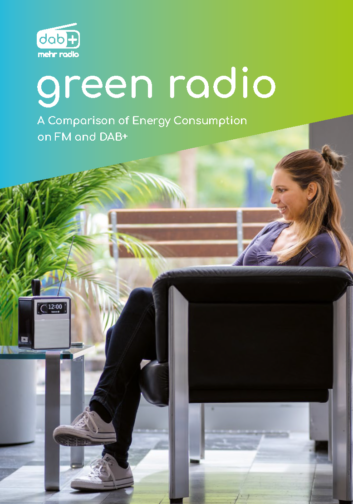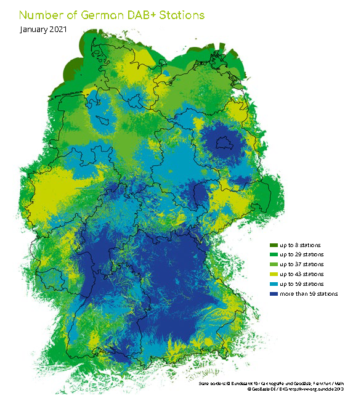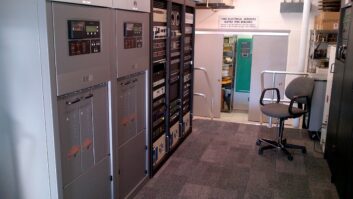The author is project director for WorldDAB.
 With the recent COP26 conference in Glasgow highlighting the global need to tackle climate change, a new study from Germany has showed how digital radio can help broadcasters reduce energy usage. Describing DAB+ as “green radio,” the report says on broadcasting a single service, between 70 and 90 percent of energy can be saved by switching from FM to DAB+.
With the recent COP26 conference in Glasgow highlighting the global need to tackle climate change, a new study from Germany has showed how digital radio can help broadcasters reduce energy usage. Describing DAB+ as “green radio,” the report says on broadcasting a single service, between 70 and 90 percent of energy can be saved by switching from FM to DAB+.
The Bavarian Regulatory Authority for Commercial Broadcasting (BLM) and the Bavarian Public Broadcaster, Bayerischer Rundfunk (BR), in partnership with network operators and receiver manufacturers, compared the energy consumption of broadcasting and receiving radio programs via FM and DAB+.
In Bavaria, all services by private radio providers and BR are available via DAB+. With around 13 million inhabitants, 16 percent of Germany’s population lives in the state.
The studies showed that, with a comparable supply, the energy consumption when broadcasting a program via DAB+ is significantly lower than FM. BR would save around 75 percent per station, while Antenne Bayern would save 85 percent in energy if its audio service were broadcast exclusively via DAB+. Other providers in Germany see similar potential reductions.
Given the extensive infrastructure that radio broadcasting operates, the research found that the cumulative resulting effect is considerable.
The report also identified that significant energy savings would also be possible by replacing Germany’s 122 million FM radios. Although most new receivers are often equipped with additional functions such as displays or wi-fi, their power consumption has dropped by around 40 percent in recent years.
The findings of the report, “Green Radio: A Comparison of Energy Consumption on FM and DAB+” were featured at the recent WorldDAB Summit, which saw the publication of an English-language translation of the report.
[See our coverage WorldDAB Summit 2021]

Speaking at the Summit to 500 delegates from around the world, Veit Olischläger, head of technology, media management and public relations at BLM, said: “As we know, climate change is a challenge for all of us. We asked what broadcasters can do — so we made an examination of the potential savings of energy consumption for transmission, FM versus DAB+, and reception.”
“Broadcasting via DAB+ saves up to 90 percent of energy,” added Olischläger. “And regardless of DAB+, the greatest energy saving effects would be achieved just by replacing older FM sets.”
In Bavaria, 42 percent of the population aged 14 and over already have at least one DAB+ receiver in their household.
Radio World invites industry-oriented commentaries and responses. Send to Radio World.







